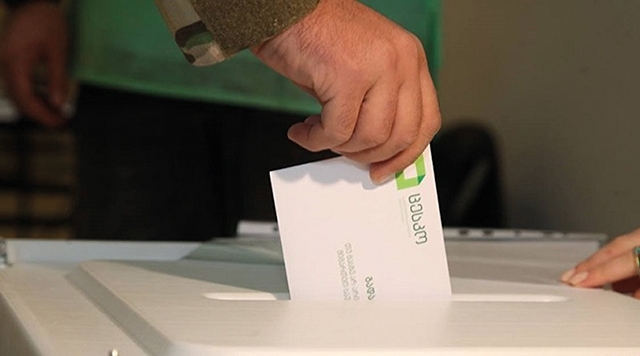What Do the Amendments to the Georgian Election Code Imply?
The draft constitutional amendments regarding the new Georgian electoral system, agreed between the ruling Georgian Dream (GD) majority and the opposition parties on March 8, have been initiated in Parliament.
The amendments read that the upcoming parliamentary elections in October 2020 will be held with 120 seats in the legislative body to be distributed via a proportional vote, and the remaining 30 via the majoritarian system.
The agreement also envisages a fair composition of election districts, a 1% threshold, and a cap recognizing that no single party that wins less than 40% of the votes should be able to get its own majority in the next parliament. At the same time, blocks are allowed, though with a different threshold. The percentage of votes received by election blocs must be at least 1% multiplied to the number of political parties within the election bloc.
The project reads that to determine the number of seats won by a political party or election bloc, the number of actual votes it receives is multiplied by 120 and divided by the sum of the actual votes received by all political parties and election blocs that crossed the electoral threshold. The number received this way is the number of seats won by a political party or election bloc. If the number of seats won by political parties and election blocs is less than 120, the unbalanced mandates shall be distributed to the parties and election blocs that got the highest balance of votes.
The percentage of the total number of seats won by the political party or bloc in the majoritarian system shall not exceed the percentage of the total number of votes in the proportional system and the sum of one quarter of this proportion.
The constitutional amendments envisage the creation of 30 single-mandate majoritarian constituencies in accordance with the administrative boundaries in force at the time of the adoption of the law:
Tbilisi Municipality:
1. Mtatsminda and Krtsanisi districts
2. Vake district
3. Saburtalo district
4. Isani district
5. Samgori district
6. Didube and Chugureti districts
7. Gldani district
8. Nadzaladevi district
Other constituencies will be located in:
9. Akhmeta, Kvareli and Lagodekhi municipalities;
10. Gurjaani, Sagarejo, Dedoplistskaro and Signagi municipalities;
11. Rustavi Municipality and administrative units of Norio, Martkopi, Akhalsofeli, Sartichala, Gamarjveba, Akhali Samgori, Lemshveniera, Teleti, Kumi and Krtsanisi of Gardabani Municipality;
12. Marneuli and Gardabani municipalities;
13. Municipalities of Bolnisi, Dmanisi, Tetritskaro and Tsalka;
14. Mtskheta, Dusheti, Tianeti and Kazbegi municipalities;
15. Kaspi and Gori municipalities;
16. Khashuri and Kareli municipalities and administrative units of Variani, Nikozi, Tirdznisi, Skra and Shindisi of Gori Municipality;
17. Municipalities of Akhaltsikhe, Borjomi, Adigeni and Aspindza;
18. Akhalkalaki and Ninotsminda municipalities;
19. Kutaisi Municipality;
20. Sachkhere, Chiatura and Kharagauli municipalities;
21. Tkibuli, Terjola, Zestafoni and Baghdati municipalities;
22. Municipalities of Samtredia, Tskaltubo, Vani and Khoni;
23. Zugdidi Municipality;
24. Poti, Khobi and Senaki municipalities;
25. The municipalities of Tsalenjikha, Chkhorotsku, Martvili and Abasha;
26. Ozurgeti, Lanchkhuti and Chokhatauri municipalities;
27. Batumi Municipality;
28. Kobuleti municipality and administrative units of Makhinjauri, Ortabatumi, Akhalsheni and Peria in Khelvachauri municipality;
29. Khelvachauri, Keda, Shuakhevi and Khulo municipalities;
30. The municipalities of Ambrolauri, Oni, Tsageri, Lentekhi and Mestia
The draft reads that the rules and conditions for running for the elections, as well as the rules for the distribution of seats for members of parliament, shall be determined by the election law.
The agreement reached between the authorities and the united opposition underlines that only the upcoming elections will be held by 120/30 system, changing from the previous 77/73 system. All following elections will take place through a fully proportional system which means that all 150 seats in the parliament will be distributed through proportional elections.
The consensus between the ruling party and the majority was welcomed by the European Parliamentarians, Council of Europe, United States of Department of State, US Senators, NGOs and the diplomatic corps based in Georgia.
Their positive assessments say that it is a step forward towards normalization of the political situation and a healthy electoral environment in Georgia.
By Tea Mariamidze
Image source: droa.ge












